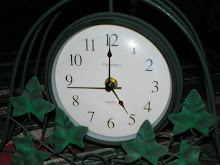(Proverbs 9:7 KJV) He that reproveth a scorner getteth to himself shame: and he that rebuketh a wicked man getteth himself a blot.
He who “reproveth” (corrects NASB) (3256) is looking for trouble.
As I look at this I wonder at my attempts to talk to people I work with. They are fools. (I say that in a loving way, believe it or not. I have a term that some do not like that I apply to many of the children I work with. I call them “Happy Fools.”) Fools will not listen. They live in the sensations of the moment. All correction does is cause trouble for me. Yet are there not other places in the Bible that recommend correcting others? I wish I could say that the difference is in the right of correction. We are to correct other believers, brothers. We are not to correct the world, neighbors. Unfortunately, brothers don’t like correction any more than neighbors do.
Being a “scorner” (scoffer NASB) (3917b) seems to be the real problem. It is not the one who tries to correct others but the one who refuses to be corrected. Although I don’t want to be a scoffer, I often find it to be my initial reaction. I try to get beyond my first response and look at what I am hearing and why I reject it. Usually this leads me down the road of Biblical memory. I start reviewing what I know the Bible says, my actions and beliefs, and what the other person is saying. When someone tells me all alcohol consumption is a sin I remember passages like this. When someone tells me homosexual marriage is moral, I think of other passages in the Bible that make that a nonsense statement for Christians. If someone claims that a Robin Hood approach to economics is “social justice,” I know enough about the Bible to call stealing, stealing. The list goes on.
So be willing to think about criticism but do it with the Bible as your base, not the front page of the L.A. Times or the latest analysis of Dr. Phil. If you are wrong, repent. If they are wrong, ignore.
Saturday, October 9, 2010
Subscribe to:
Post Comments (Atom)

No comments:
Post a Comment